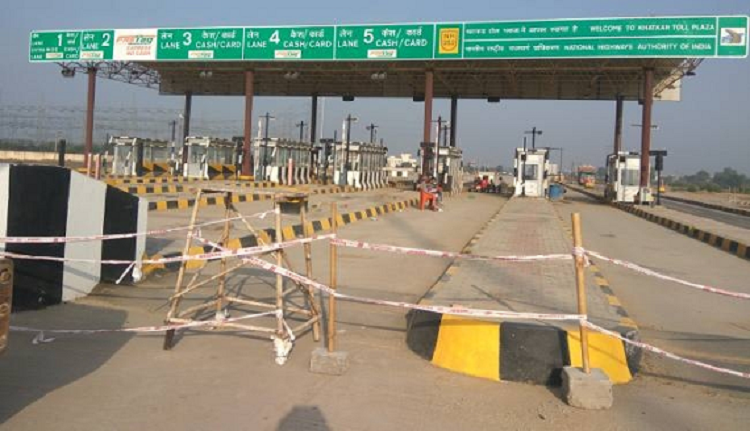
Can you escape Contractual Obligation under Covid-19?
Freedom from
*Rent
*School Fee
*Loan instalment
*Bank guarantee etc
To understand it let’s take the case of an Employer, who has hired a Contractor, to collect toll on its behalf. As per agreed terms and condition, the Contractor is responsible for paying Rs. 20 Crore per week to the Employer.
All of sudden, the lockdown is announced and the traffic crossing the toll plaza is reduced significantly, now what will happen to weekly payment of Rs. 20 Crore is the case?
The contractor, also owed a payment of Rs. 115 Crore to the employer of previous collection.
The contractor, also owed a payment of Rs. 115 Crore to the employer of previous collection.
Facts:
In the case of MEP Infrastructure Developers Ltd. v. South Delhi Municipal Corporation.
No notice for invoking Force Majeure required:
Further, the Hon'ble Court noted that as a result of the MORTH Circular and the Department of Expenditure Circular dated 19th February 2020, COVID-19 became a force majeure event, as a direct result of these circulars itself and as such, no further action, in the form of a notice, for invoking force majeure to these situations was required.
The Court observed that `the force majeure clause under the agreement immediately becomes applicable and the notice for the same would not be necessary.`
Consequently, the Hon'ble Court observed that the strict timelines for making payments under the contract stood suspended and that the same would not be feasible until the `restoration of the pre-force majeure conditions.` Recognition of partial frustration arising from COVID?
The observations by the Hon'ble Delhi High Court regarding COVID-19 and the suspension of strict timelines until restoration of pre-COVID normalcy by the Delhi High Court appears to be recognition of a Doctrine called `partial frustration` in contract law.
While this issue has not been directly considered by the Delhi High Court in the present case, its observations in relation to COVID and the lack of control of parties in relation to the national lockdown clearly demonstrates the possibility of the Court taking a view that COVID is not only a `Force Majeure` event, but is also a supervening event for the purpose of frustration of contract, as a result of which, partial frustration can be invoked.
Court ruled that COVID is Force Majeure
This decision of the Hon'ble Delhi High Court marks a departure from several of its previous judgments. Whereas in its previous judgments, the Delhi High Court had held that COVID cannot be ground for refusing to pay rent, school or college fees, condoning pre-COVID breach of contracts, etc; in all of which relief based on COVID was refused, in this judgment, the Delhi High Court has recognized COVID as a force majeure event and has granted relief against adherence to strict timelines as a result of COVID.
Further, the observations in this judgment indicate an inclination of the Court to consider COVID as a `supervening event causing partial frustration of contract`, thus, protecting parties from its performance obligations. Such relief and timely intervention of Courts is a breather for the entire industry as the Infrastructure sector forms the bedrock of the Indian Economy. However, the Court refused to give any relief on previous dues of Rs. 115 Crore, citing being not raised on time or objected/disputed during the hearing.
The dispute concerned the responsibility of the Contractor/ Petitioner to make payments to the Employer/Respondent in return for being allowed to collect toll.
It was argued that the case is governed by the Ministry of Road Transport and Highways ("MORTH") Circular dated 18th May 2020, which identified COVID as a force majeure event for construction contracts.
Placing reliance on the MORTH Circular, which had in turn followed the Department of Expenditure, Ministry of Finance Circular dated 19th February 2020, the Hon'ble Delhi High Court noted that in the wake of the nationwide lockdown being effected from 24th March 2020, `free movement of traffic is being regulated even now at borders between the States.`
Further, the Hon'ble Court observed that `full operability of the contract is hindered by orders of the National and the State governments` (for lockdowns), which are circumstances and conditions beyond the control of the contractor.
No notice for invoking Force Majeure required:
Further, the Hon'ble Court noted that as a result of the MORTH Circular and the Department of Expenditure Circular dated 19th February 2020, COVID-19 became a force majeure event, as a direct result of these circulars itself and as such, no further action, in the form of a notice, for invoking force majeure to these situations was required.
The Court observed that `the force majeure clause under the agreement immediately becomes applicable and the notice for the same would not be necessary.`
Consequently, the Hon'ble Court observed that the strict timelines for making payments under the contract stood suspended and that the same would not be feasible until the `restoration of the pre-force majeure conditions.` Recognition of partial frustration arising from COVID?
The observations by the Hon'ble Delhi High Court regarding COVID-19 and the suspension of strict timelines until restoration of pre-COVID normalcy by the Delhi High Court appears to be recognition of a Doctrine called `partial frustration` in contract law.
Under the Indian Contract Act, 1872 `where a party is unable to perform a part of their contract owing to supervening circumstances, they may, under section 56 of the Indian Contract Act, apply for discharge of such obligations, partially, based on the supervening impossibility`.
Thus, even in cases where there is no `Force Majeure` clause, it is open to the parties to apply under section 56 of the Indian Contract Act 1872, `to seek complete discharge of obligations, for the period in relation to which, the supervening impossibility relates`.
While this issue has not been directly considered by the Delhi High Court in the present case, its observations in relation to COVID and the lack of control of parties in relation to the national lockdown clearly demonstrates the possibility of the Court taking a view that COVID is not only a `Force Majeure` event, but is also a supervening event for the purpose of frustration of contract, as a result of which, partial frustration can be invoked.
Court ruled that COVID is Force Majeure
This decision of the Hon'ble Delhi High Court marks a departure from several of its previous judgments. Whereas in its previous judgments, the Delhi High Court had held that COVID cannot be ground for refusing to pay rent, school or college fees, condoning pre-COVID breach of contracts, etc; in all of which relief based on COVID was refused, in this judgment, the Delhi High Court has recognized COVID as a force majeure event and has granted relief against adherence to strict timelines as a result of COVID.
Further, the observations in this judgment indicate an inclination of the Court to consider COVID as a `supervening event causing partial frustration of contract`, thus, protecting parties from its performance obligations. Such relief and timely intervention of Courts is a breather for the entire industry as the Infrastructure sector forms the bedrock of the Indian Economy. However, the Court refused to give any relief on previous dues of Rs. 115 Crore, citing being not raised on time or objected/disputed during the hearing.
Your free access to Supreme Law News has expired
For further details contact:
Dr. Ajay Kummar Pandey
( LLM, MBA, (UK), PhD, AIMA, AFAI, PHD Chamber, ICTC, PCI, FCC, DFC, PPL, MNP, BNI, ICJ (UK), WP, (UK), MLE, Harvard Square, London, CT, Blair Singer Institute, (USA), Dip. in International Crime, Leiden University, the Netherlands )
Advocate & Consultant Supreme Court of India, High Courts & Tribunals.
Delhi, Mumbai & Dubai
Tel: M- 91- 9818320572. Email: editor.kumar@gmail.com
Website:
www.supremelawnews.com
www.ajaykr.com, www.4Csupremelawint.com
Facebook: /4Clawfirm, /legalajay Linkedin: /ajaykumarpandey1 Twitter: /editorkumar / YouTube: c/4cSupremeLaw Insta: /editor.kumarg
Telegram Channel
Whatsup Channel











